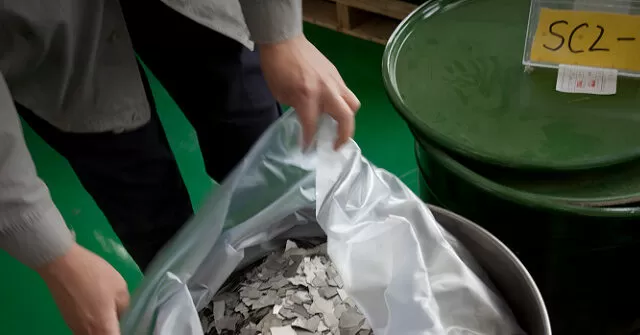China, the world’s largest producer of rare earth minerals, has recently announced that it will halt its exports of certain crucial minerals. This decision has sent shockwaves through key industries such as technology, automobile, aerospace, and defense, which heavily rely on these minerals for their production processes. The move has sparked concerns and debates among industry experts, with many speculating about the potential impact on global supply chains and economies. Let us delve deeper into this issue and understand the reasons behind China’s decision.
Rare earth minerals, also known as rare earth elements (REE), are a group of 17 metals that are essential for the production of various high-tech products. These minerals have unique magnetic, optical, and electrical properties, making them crucial components in the manufacturing of smartphones, computers, electric vehicles, wind turbines, and military equipment. China currently dominates the global rare earth market, accounting for nearly 80% of the world’s production. This dominance has put the country in a position of power, allowing it to control the supply and prices of these minerals.
However, China’s decision to limit the export of rare earth minerals is not a new development. The country has been gradually reducing its exports of these minerals since 2006, citing environmental concerns and the need to preserve its own resources. In 2010, China also imposed an unofficial ban on shipments of rare earth minerals to Japan during a territorial dispute, causing a significant disruption in the global supply chain. The recent announcement is another step in this direction, highlighting China’s determination to prioritize its own domestic needs over international demands.
The impact of this decision will be felt by various industries that rely heavily on rare earth minerals. In the technology sector, these minerals are used in the production of electronic devices and batteries. With the rise of electric vehicles and the increasing demand for renewable energy sources, the automobile and energy industries will also be affected by the limited supply of rare earth minerals. The aerospace and defense industries, which use these minerals in the production of advanced weapon systems and aircraft components, will also face challenges.
The immediate effects of China’s decision will be higher prices and potential shortages of rare earth minerals, causing disruption in supply chains and delays in production. This could lead to increased costs for manufacturers, which could eventually be passed on to consumers. However, in the long run, this move could also present an opportunity for other countries to step up their production of rare earth minerals and reduce their dependence on China. This could lead to a more balanced global market and promote healthy competition.
China’s decision has also sparked discussions about the importance of diversifying the supply of rare earth minerals. Many countries, including the United States and Australia, have significant reserves of these minerals but lack the infrastructure and technology to extract and process them. This could be a wake-up call for these countries to invest in their own production capabilities and reduce their reliance on China.
In conclusion, China’s move to limit the export of rare earth minerals has sent ripples through key industries, causing concerns and debates. While the immediate impact may be challenging, this decision presents an opportunity for other countries to step up their production and diversify the global supply chain. It also highlights the need for countries to become more self-sufficient in meeting their own demands for rare earth minerals. In the end, this could lead to a more balanced and sustainable market for these crucial minerals.






![Complete BritRail Pass Guide [Types, How to Use It, Pros + Cons]](https://inside-news.uk/wp-content/uploads/2025/06/00221EB4-BCA2-4DBB-6CD4-83DBC37D71FA-120x86.webp)















